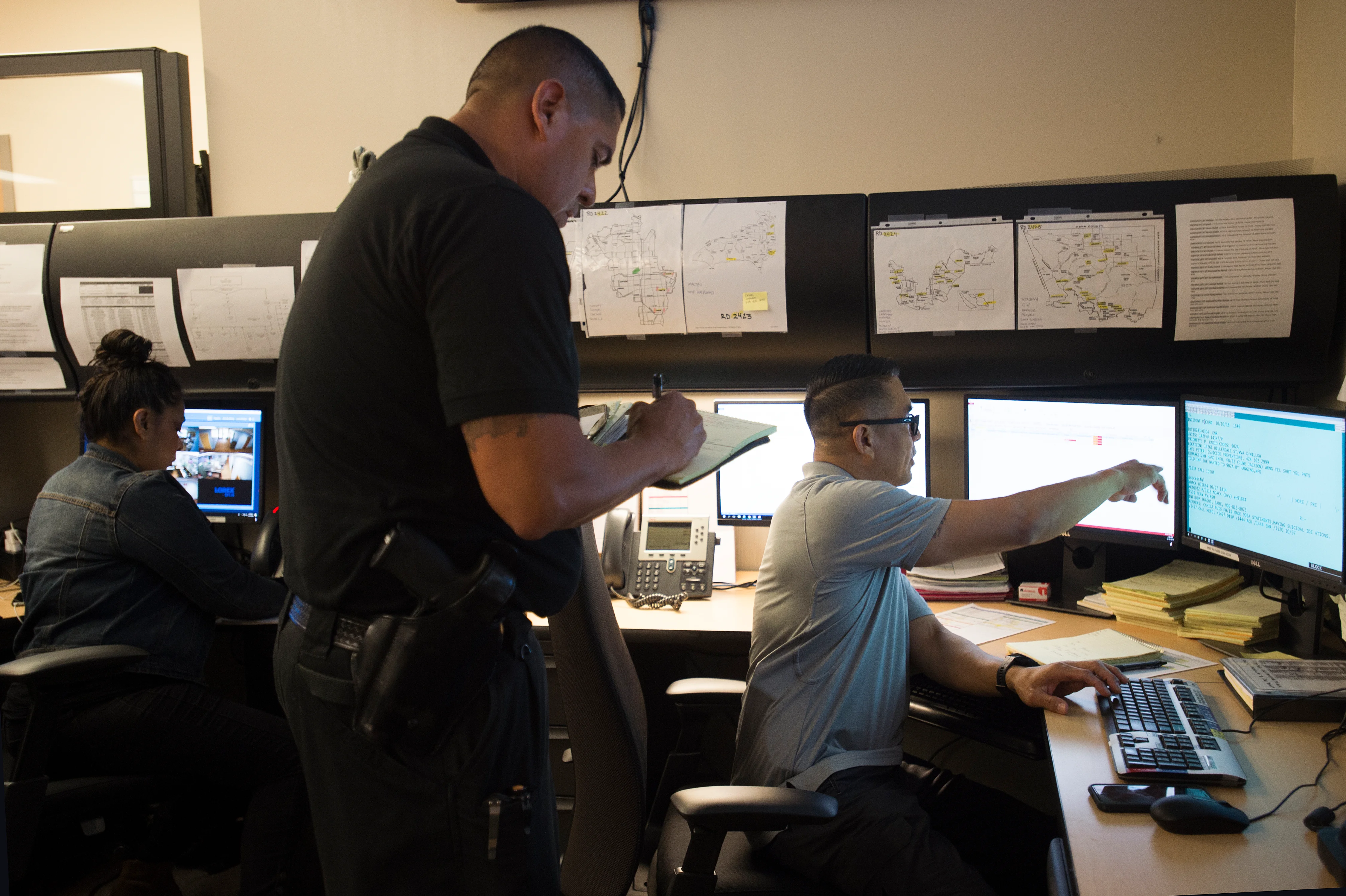
Mental Evaluation Teams
- Home
- Mental Evaluation Teams
Mental Health Evaluation Teams
Mental Evaluation Teams (MET) are co-responder teams staffed by a Sheriff's Department deputy and a Department of Mental Health clinician that work together to assist patrol deputies responding to situations involving persons with mental health issues.
Actions of the Commission
The final report and recommendations of the MET Ad Hoc Committee were voted on and approved at the February 15, 2018 Commission meeting and subsequently provided to the Board of Supervisors and the Sheriff's Department. This review was in response to the Board motion passed in January 2017 requesting the Commission to identify potential improvements to the MET program to enhance the mission of de-escalating violent confrontations between law enforcement and persons with mental illness.
These recommendations resulted from the Ad Hoc Committee holding several meetings with MET program management and key members from the Sheriff’s Department and Department of Mental Health. The committee obtained public feedback, participated in trainings and conducted research on similar co-response team deployment models.
The committee presented a preliminary status report which included lessons learned on MET benefits and challenges at the August 24, 2017 Commission meeting and subsequently provided a memo outlining additional actions taken at the November 16, 2017 Commission meeting.
Strategic Recommendations
The report included a total of 33 specific recommendations that were outlined under these four overarching recommendations:
- Increase the number of MET teams from 23 to 60.
- Prioritize a department-wide de-escalation training with a mental health focus.
- Promote inter-agency collaboration with other mental health partners and stakeholders.
- Treat MET and mental health-focused de-escalation training equally and complementary to the strategies reducing uses of force and promoting constitutional policy.
Measurable Results
MET program team members presented a progress report at the September 27, 2018 Commission meeting, where the Sheriff’s Department reported most recommendations were implemented, among them:
- The number of approved MET teams increased from 23 to 45, which LASD states is the absolute minimum number of teams required to be able to handle 100% of the crisis calls. LASD expects to have all 45 teams up and running by midyear 2020.
- More coverage is provided during the busiest times of the day, as well as coverage during the 2:00-6:00 a.m. shift, with improved scheduling
- To enable countywide coverage, the number of centralized MET hubs has expanded from two in 2016 to nine in 2018. This has also reduced the average estimated time of arrival from 47 minutes in 2016 to 23 minutes countywide.
- Crisis Intervention Training continues to train patrol deputies, with about 30% already trained as of September 2018.
- Increase the availability of Multiple Interactive Learning Objectives (MILO) simulator training, including a mobile MILO unit.
- A two-hour block of training on how to complete the 5150 hold forms in order to provide better information to hospitals is now included for deputies attending patrol school.
- The Risk Assessment and Management Program, or RAMP, which conducts follow-up with the most chronic users of law enforcement services, has expanded to six deputy-clinician teams.
The MET program has continued to show success. In fiscal year 2017-18, the Sheriff's Department handled 6,013 crisis calls resulting in mental health holds, which involve persons who are a danger to themselves or others, an increase of 60% over the past three fiscal years. This year MET has handled 4,523 crisis calls to date, 15% of those handled by consultation alone at the Triage desk.
The unanticipated benefit of having MET is their ability to respond more quickly that precluded the need for using the Crisis Negotiation Team (CNT). To date MET has had 70 calls where CNT would have responded. In the past, MET handled 64% of those calls without requiring the activation of a CNT because MET staff already had neutralized the situation.
The goal of Mental Evaluation Teams is to assist persons in obtaining the proper mental health assessment and treatment instead of being arrested and jailed, as well as de-escalating potentially volatile situations with patrol deputies.
Photo right: L.A. County Sheriff Deputy Joe Miranda & at the MET headquarters in El Monte on October 10, 2018. M.E.T partners collaborate to assist law enforcement as they encounter people with mental health issues.

Links
Mental Evaluation Team Program Final Report (2-15-2018) (En español)
Mental Evaluation Team Program Report (8-24-2017)
Restoring Mental Evaluation Teams & Homeless Outreach Services Teams (Motion by Supervisors Barger & Solis, August 4, 2020)
Co-response Teams & De-escalation (Supervisor Solis, January 10, 2017)
Department of Public Health - Local & National 24-Hour Crisis Hotlines
Department of Mental Health - Alternate Crisis Services
Department of Mental Health - Get Help Now
Sheriff's Department - Mental Evaluation Team Reports
Sheriff's Department - Special Alert Request
Sheriff's Department - Incarcerated people with Special Needs: Medical, Physical & Mental Illness
Sheriff's Department - Inmate Medication Information Form (Spanish)
Mental evaluation assistance contact information
For life threatening emergencies, dial 9-1-1.
For the Mental Health ACCESS 24/7 hotline, dial (800) 854-7771.
For the Sheriff's Department, dial (213) 229-1700.